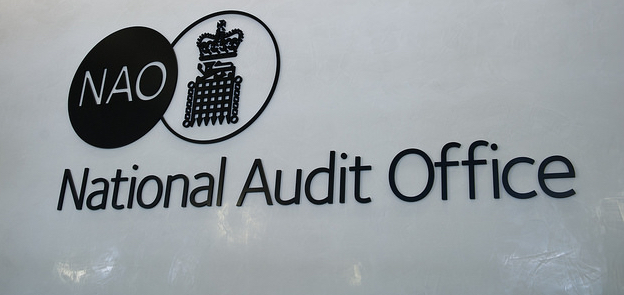National Audit Office director for local audit code and guidance Mike Newbury responds to Stephen Sheen’s recent blog on the audit objective of giving a view about the ongoing reliability of an authority’s financial records.

Being both a local public audit nerd as well as a consumer of whodunnits I greatly enjoyed Stephen Sheen’s recent blog for Room151, ‘Local authority financial failure and the mystery of the lost audit objective’.
I girded my loins, grabbed my deerstalker and magnifying glass, and headed off to search for the lost audit objective. After my search I am pleased to report that the ‘missing’ audit objective is still very much with us.
In the National Audit Office (NAO) we have never doubted the importance of the reliability of an authority’s financial information. That’s why the 2020 Code of Audit Practice wove these issues into the auditors’ work on value for money. Auditors must assess the risks to an authority’s arrangements to secure value for money in three domains. These are:
- Financial sustainability: how the body plans and manages its resources to ensure it can continue to deliver its services.
- Governance: how the body ensures that it makes informed decisions and properly manages its risks.
- Improving economy, efficiency and effectiveness: how the body uses information about its costs and performance to improve the way it manages and delivers its services.
Our Auditor Guidance Note 3 sets out the approach to this work and it’s reassuring to note that the matters that Stephen raises are at the heart of our guidance, right from the planning stage through to reporting. For example, on internal controls, paragraph 3.7 of the 2020 Code states:
“…[the] auditor’s work should be underpinned by consideration of what arrangements the audited body is expected to have in place. This should be based on the relevant governance code or framework for the type of local public body being audited, together with any other relevant guidance or requirements. The auditor’s work should be to understand the arrangements in place at the entity level and how the body itself ensures compliance with its system of internal control as reported on in its annual governance statement.”

Whilst it is for individual auditors to exercise professional judgement in the context of the audit to decide if an issue is a significant weakness, we can set out some illustrative cases which also touch on Stephen’s concerns.
- On financial sustainability these include significant inconsistencies between budgetary information and the financial position as reflected in the financial statements.
- On governance these include:
– serious and pervasive weaknesses in final accounts processes leading to material errors in draft accounts;
– pervasive and significant weaknesses in internal controls, especially where these have had a significant financial/service-delivery impact or exposed the body to fraud; and,
– significant or repeated departure from key regulatory and statutory requirements or professional standards, such as the CIPFA Financial Management Code, Prudential Code, Treasury Management Code, departmental statutory guidance issued to local government and local NHS bodies, etc [which] could be indicative of a significant weakness in arrangements.
15th Annual LATIF & FDs’ Summit – 19 September 2023
250+ Delegates from Local Government & Investment
Professional judgement is crucial when assessing these arrangements because, as the Accounts and Audit Regulations 2015 make clear, it’s the responsible financial officer in each authority who should determine both the form of the accounting records and the system of financial control. That’s as it should be because these must reflect the specific organisational context of the authority. Primary responsibility for the proper conduct of any authority’s affairs rests with that authority’s executive and political leadership, not the auditor.
We would absolutely agree with Stephen that auditors should have a view about the ongoing reliability of an authority’s financial records, but so should the authority’s own leadership. Where we would part company is any suggestion that absence of adverse comment relating to, for example, investment decisions, can reasonably be taken as an expression of satisfaction.
An auditor’s work has to be risk-based so could never cover absolutely everything an authority does, but they should have a view on those areas of greatest risk. And that risk assessment should be clear to the authority. An authority that just assumed a particular action or decision must be ‘ok’ because an auditor had not mentioned it is likely failing to fully appreciate the extent of assurance that most audits are able to give.
We think – as I recently stated in evidence to the Levelling up, Housing and Communities Select Committee inquiry – that the Code and guidance gives auditors sufficient scope to tackle issues of financial resilience, fraud and lawful decision making. There are good examples of where auditors have used this effectively to raise significant risks.

These show that auditors are clear about the requirements on them and already have the tools to discharge their responsibilities – a radical re-working of the Code of Audit Practice and guidance may not therefore be needed. But while auditors could never be expected to review actions or decisions as they happen, we need to find out why there has not been more consistent reporting by auditors in a sufficiently timely way to head off the problems we have seen only too frequently over recent months.
Once we know why such reporting is not consistently happening, we can then see what it is possible to do about that. The NAO is already working on this question as part of the sector-wide actions being pursued by stakeholders which the Minister of State described in his recent statement.
In conclusion, we agree with Stephen that timely reporting is crucial to the usefulness of both financial audits and the auditors’ value for money reporting. Our focus is already on how we improve timeliness so that authorities and the communities they serve get up-to-date, independent and authoritative reporting on what is going on in their local authority.
We will have more to say on this going into the autumn and look forward to hearing from accounts preparers and auditors as we shape options for the NAO to consider.
Mike Newbury is the National Audit Office director for local audit code and guidance.
—————
FREE weekly newsletters
Subscribe to Room151 Newsletters
Follow us on LinkedIn
Follow us here
Monthly Online Treasury Briefing
Sign up here with a .gov.uk email address
Room151 Webinars
Visit the Room151 channel










